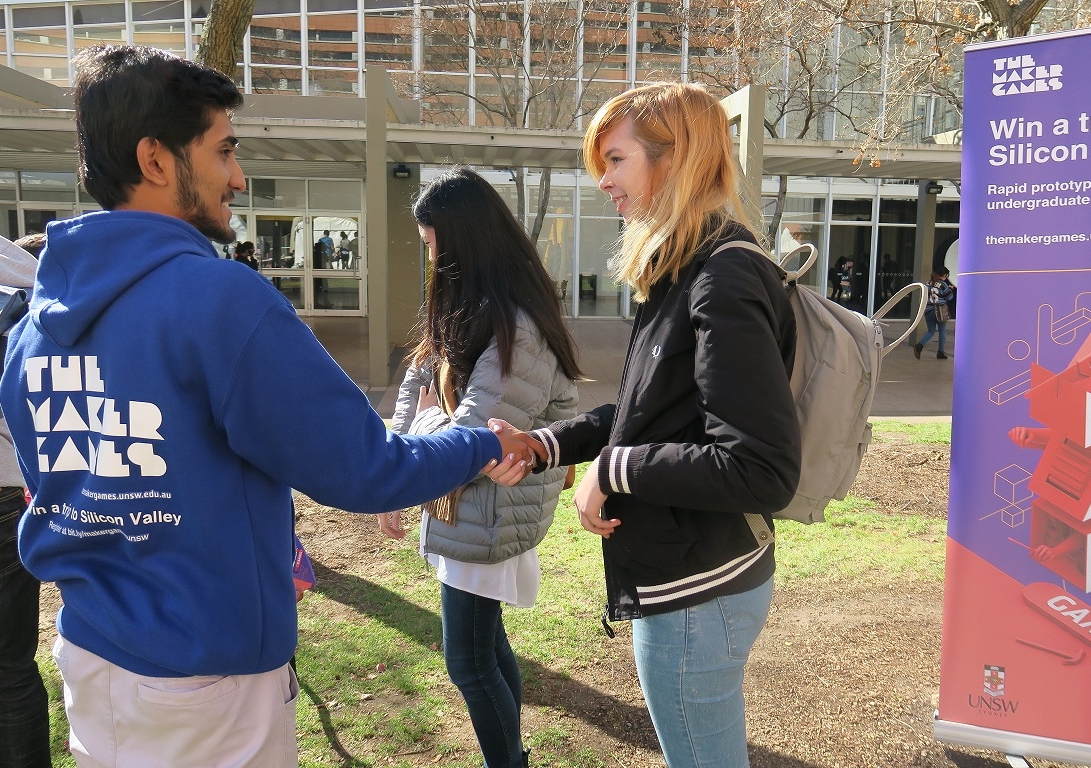UNSW students set their sights on Silicon Valley
The Maker Games will offer UNSW students the chance to build working prototypes to solve a range of industry challenges and win a trip to Silicon Valley.
The Maker Games will offer UNSW students the chance to build working prototypes to solve a range of industry challenges and win a trip to Silicon Valley.

Can we literally power the world with exercise? Can we use lighting to improve how we live and work, or find off-grid energy sources to light up our motorways?
These are just some of the devilishly tricky problems UNSW undergraduates hope to solve for some of Australia’s biggest companies at the Maker Games, a rapid prototyping competition hosted by UNSW’s Faculty of Engineering.
Open to all UNSW undergraduate students, the competition is based on the best and brightest students working with some of Australia’s most dynamic companies.
Teams will build working prototypes to solve a range of industry challenges. The winning team will be rewarded with a trip to California’s Silicon Valley.
The Faculty’s industry colleagues gave birth to the idea to hold the competition, says Dean of UNSW Engineering Professor Mark Hoffman.
“Industry came to us and said they had so many really wicked problems their industry was struggling to solve and they needed more people to think about them,” Professor Hoffman says.
“And I thought about UNSW’s incredible resource in engineering. We have the brightest students in engineering in the country and we know these students are keen to apply the innovative approaches they gain at UNSW to solve real world problems. So, we created the Maker Games,” he says.
The Games will expose participants to the realities of the corporate world, and help them make connections with students in other faculties and in industry.
On Friday, industry judges will listen to more than 100 one-minute pitches from participating students, and draw up a short list of 17 of the best ideas, which will then progress to the prototyping round.
The public will be invited to view a showcase of the prototypes at UNSW’s Kensington campus on 14 October, when the winning team will be announced.
Industry partners for the Maker Games include the Commonwealth Bank of Australia, WSP Parsons Brinckerhoff, Transurban, Telstra, Philips, Cisco, The Rebel Group, SCentre Group-Westfield Shopping Centres, and Vertiv (formerly Emerson Network Power). UNSW's own World Class Environments portfolio, managed through the Strategy 2025 Office, is also a partner in the Games, with a challenge related to implementing a smart campus at UNSW.